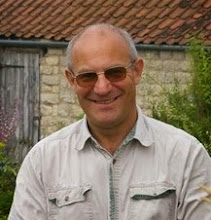 |
| Rhododendron 'Fugen-no-tsuki' (flower is 3 cm across) |
The Yorkshire Arboretum database contains the notes made on each plant added to the collection by the late Jim Russell, and in this case there is a general commentary on the variation of R. kiusianum and its propensity to form hybrids with other species. There is also a line giving the information: "Wild collected forms introduced by the National Arboretum, Washington. A plant each from Windsor, autumn 1981. NA 40818".
Intrigued, I emailed my friend Dr Richard Olsen at the United States National Arboretum to enquire if anything more was known about this source. He passed the enquiry to their Plant Records officer Stefan Lura, who replied with all the details one could wish for. In 1976 Dr John Creech and 'Skip' (Sylvester) March from USNA went to Japan to collect interesting plants from small nurseries, which, it was felt, were disappearing and good plants were at risk of being lost. One of the groups of plants they focused on were selections of Rhododendron kiusianum, or hybrids thereof, that had been collected in the mountains and brought into cultivation. Their success with this is described in detail in an article by Ronald Bare, fortunately available online. 'Fugen-no-tsuki' was one of fourteen cultivars obtained from a nursery "called Kyoma Yokota, located near Mt. Unzen in Kunimiche, Minami Takaki-gun. The nursery is run by a young Japanese woman under the watchful eye of her elderly father." It was given the collection number C&M 563, and then the accession number NA 40818.
By 1979 the USNA had propagated enough cuttings from the imported plants to offer them to other institutions. Their database shows that in that year material of eleven clones was sent to Wisley and to Sir Harold Hillier. I enquired how, in that case, had Jim Russell obtained material from Windsor. This prompted Stefan to hunt through records that had not made it to database: sure enough, in the distribution records for 1980 he found a request form, completed by Skip March, authorising the sending of 16 clones to John Bond, then Keeper of the Royal Gardens in Windsor Great Park. The material was sent on 24 November 1980. It was obviously on one of Jim Russell's forays there, in autumn 1981, that he acquired the plants we now grow (we also have several more of these clones, which I'll look out for in normal flowering season). Whether he grew them from cuttings, or whether John Bond gave him the original plants is unknown, but the next step is to find out if any of them are still grown at Windsor - 'Fugen-no-tsuki' is no longer cultivated by USNA in Washington DC, and it's not at the Hillier Gardens or Wisley either.
All this information is now recorded in our database, making the history of one small, obscure azalea that much more complete - I'm very grateful to Stefan Lura for his interest in hunting out the records.
























